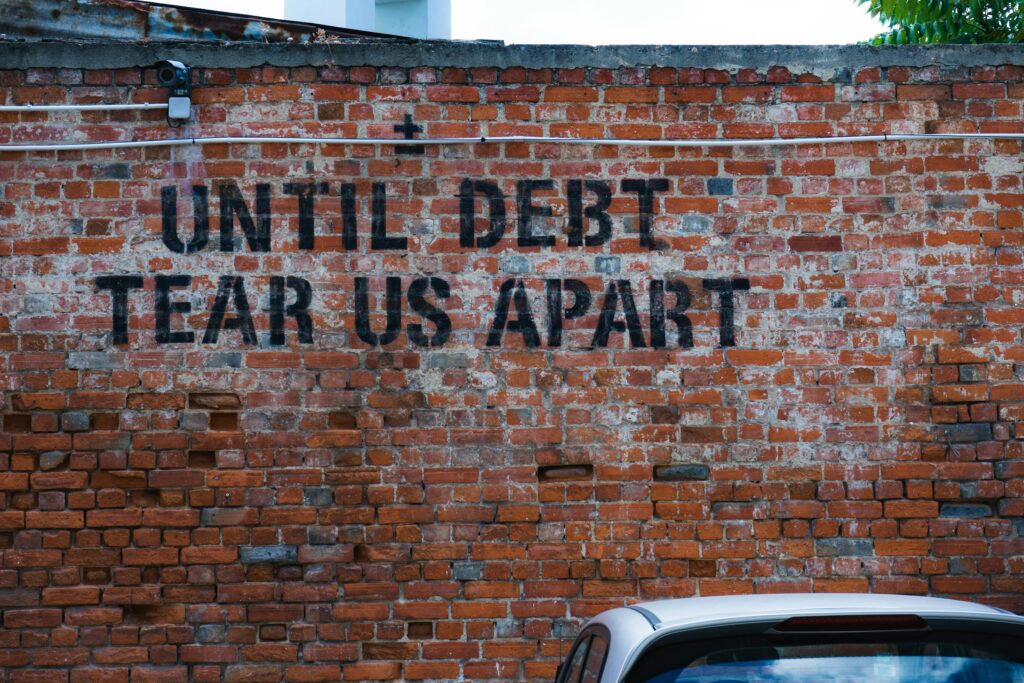Is Debt Consolidation the Right Choice for You? 5 Key Factors
Managing debt can often feel like a Herculean task, especially if you’re juggling multiple credit cards, loans, and bills. If you’re struggling to keep track of your payments, you might have heard about debt consolidation as a potential solution. But is it the right choice for you? To help you navigate this decision, we’ll dive deep into the pros and cons of debt consolidation, key fees to consider, timelines, credit impacts, and how this method can reset your budget for lasting change. Let’s explore the five key factors that will help you determine if debt consolidation is your best option.
Love our content? Show your support by following us — pretty please!🥺
FOLLOW ON PINTEREST
Hi! I’m Kate, the face behind KateFi.com—a blog all about making life easier and more affordable.
✅ See If You Qualify for Debt Relief
1. Understanding Debt Consolidation
Lower Your Unsecured Debt
If you have $5,000+ in credit card or personal loan debt, a free consult can review options like settlement or hardship plans.
- One-on-one call to review your debts and goals
- See potential monthly payment reductions
- No obligation to enroll
Not available in IL, KS, OR, TN, UT, WV.
Debt consolidation involves merging multiple debts into a single loan or payment plan, which can simplify your finances. By taking out a new loan, you can pay off your existing debts, leaving you with just one monthly payment to manage. There are different methods to consolidate debt, including personal loans, balance transfer credit cards, and debt management plans.
Pros of Debt Consolidation:
- Simplicity: One payment instead of many can reduce the stress of managing different due dates and creditors.
- Lower Interest Rates: If you qualify for a loan with a lower interest rate than your existing debts, you could save money on interest over time.
- Improved Cash Flow: Lower monthly payments can free up cash for other essentials, making budgeting easier.
Cons of Debt Consolidation:
- Fees: Depending on the method, you might incur fees that can offset any potential savings.
- Extended Terms: Some consolidation loans extend the repayment period, which could lead to paying more interest over time.
- Risk of Accumulating More Debt: If you don’t change your spending habits, you may find yourself back in debt after consolidating.
Understanding these pros and cons is crucial. If you’re feeling overwhelmed by debt and not sure where to begin, consider getting a free consultation to review your options.
2. Fees and Costs Associated with Debt Consolidation
When weighing your options for debt consolidation, it’s essential to examine the fees associated with each method. Here’s a quick comparison:
| Method | Potential Fees | Additional Considerations |
|---|---|---|
| Personal Loan | Origination fees, interest rates | Fixed or variable rates, credit score needed |
| Balance Transfer Credit Card | Transfer fees, higher interest rates post-intro | Temporary relief, impacts credit utilization |
| Debt Management Plan | Setup and monthly fees | Managed by a credit counseling agency |
Make sure to factor these costs into your budget to see if the benefits outweigh the expenses. A thorough review can help you avoid surprises down the line.
✅ See If You Qualify for Debt Relief
3. Timelines: How Quickly Can You Expect Results?
Understand pros/cons of settlement vs consolidation vs DMP for your exact mix of debts.
Not available in IL, KS, OR, TN, UT, WV.
Timelines can vary widely based on the consolidation method chosen. Here’s a general breakdown:
- Personal Loan: Once approved, funds are typically disbursed within a few days, allowing you to pay off existing debts almost immediately.
- Balance Transfer Credit Card: If you apply and are approved quickly, you can transfer balances almost instantly. However, this usually requires careful timing to avoid incurring interest.
- Debt Management Plan: Enrollment might take a few weeks, as it involves setting up the plan with a credit counselor and negotiating with creditors.
While personal loans and balance transfer cards can provide immediate relief, debt management plans often take longer to implement but can lead to a more structured repayment approach. Keep in mind that the timeline can significantly influence your financial stress levels—therefore, select a method that aligns with your urgency and circumstances.
4. The Impact on Your Credit Score
👉 Start Your Free Debt Relief Review
Not available in IL, KS, OR, TN, UT, WV.
Any decision you make about debt consolidation can affect your credit score. Here’s what you need to know:
- New Loan Inquiry: When you apply for a loan, lenders will perform a hard inquiry, which may cause a temporary dip in your score.
- Credit Utilization: Paying off credit cards with a personal loan or balance transfer can improve your credit utilization ratio, potentially raising your score.
- Payment History: Successfully sticking to a new consolidated payment can enhance your payment history over time, positively impacting your credit.
Before you decide, it’s wise to gather relevant documents like your credit reports, current debt amounts, income statements, and any outstanding loans. Having this information ready can facilitate a smoother consultation process.
✅ See If You Qualify for Debt Relief
5. Creating a Budget Reset That Actually Sticks
Ultimately, debt consolidation is not just about managing existing debt—it’s about creating a sustainable path to financial health. A budget reset is crucial for ensuring that your debt situation doesn’t revert after consolidation. Here are practical steps to ensure long-term success:
- Track Your Spending: Keep a close eye on where your money goes. Apps and spreadsheets can help you stay accountable.
- Set Up an Emergency Fund: Having savings can prevent future reliance on credit in emergencies.
- Revise Your Budget: Allocate more towards your consolidated payment while cutting back on non-essential spending.
- Educate Yourself: Understanding the ins and outs of budgeting can empower you to make informed financial decisions.
- Stay Consistent: Set reminders for payments and regularly assess your budget to ensure you’re on track.
A successful budget reset requires dedication and the right strategies. If you’re unsure where to start, consider getting a free consultation to discuss effective budgeting and debt-relief options tailored to your situation.
Conclusion: Finding Your Path to Financial Freedom
Choosing to consolidate your debt is a significant decision that can set you on a path toward financial stability if done correctly. By weighing the factors outlined in this post—understanding the methods, being aware of fees, considering timelines, recognizing credit impacts, and committing to a sustainable budget—you can make an informed choice.
Keep in mind that debt relief is not a one-size-fits-all solution. It’s crucial to review your unique situation and financial goals before proceeding. So, take the first step towards regaining control of your finances—get a free consultation today!
Important: This content is for education only—not legal, tax, or financial advice. Results and eligible programs vary by situation and state. Fees apply if you enroll and complete a program. Debt relief can affect credit; missed payments may lead to collections/lawsuits. Not available in IL, KS, OR, TN, UT, WV.
By carefully evaluating these five key factors, you can confidently decide whether debt consolidation is the right fit for you. Take the time to educate yourself and seek professional guidance, and remember that financial freedom is within reach!






















